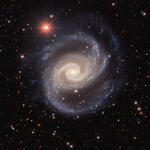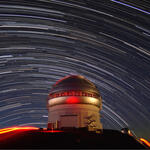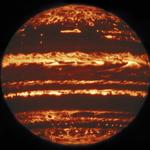Exploring the Universe, Sharing its Wonders
The International Gemini Observatory consists of twin 8.1-meter diameter optical/infrared telescopes located on two of the best observing sites on the planet. From their locations on Maunakea in Hawai‘i and Cerro Pachón in Chile, Gemini Observatory's telescopes can collectively access the entire sky.
The international Gemini Observatory is operated by NSF NOIRLab.
-->
Access the Calls for Proposals |
||
| Semester Program: | 2025B CfP | Closed |
| Large and Long Program: | 2025B LLP CfP | Closed |
| Fast Turnaround: | This month's CfP | Open |
Press Releases

Planetary System Found Around Nearest Single Star
March 11, 2025

A Fiery Rose Captured by Gemini South
February 14, 2025






